By Ruben Lowman
The nesting season for sea turtles who make North Myrtle Beach and other localities along the South Carolina coast home began last month.
The Times spoke with Linda Mataya of the North Myrtle Beach Sea Turtle Patrol to find out more information about our summer guests and the ways residents and visitors can help protect them and their delicate environment. Mataya was asked to update the newspaper when the first nest was officially found on our beaches.
She was excited to break the news that the Sea Turtle Patrol, aided by city sanitation workers, found the first nest and re-located it closer to the dunes at 41st Avenue North in Cherry Grove.
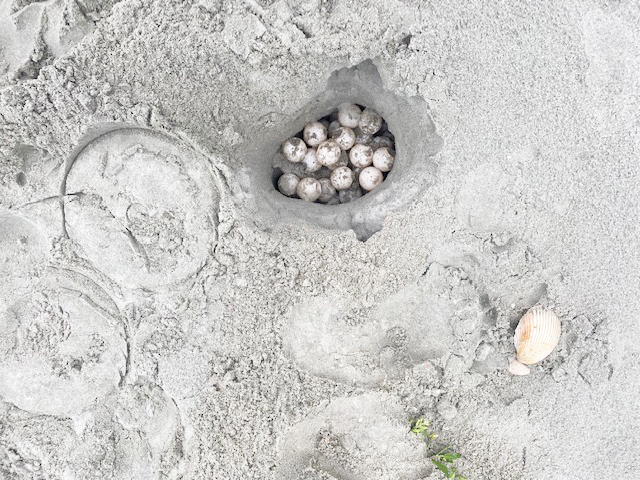
Although it may seem a little late in the season to find the first nest, Mataya assures that it is right on schedule for our beaches, with June and July typically having the most nesting activity.
Because of the social distancing restrictions in place, only Mataya and one other volunteer could move the nest at the same time, making things a bit more difficult than normal. Through teamwork and the cooperation of all the volunteers they were successfully able to move the nest to an area that will be more protected and provide the eggs with a better chance of survival.
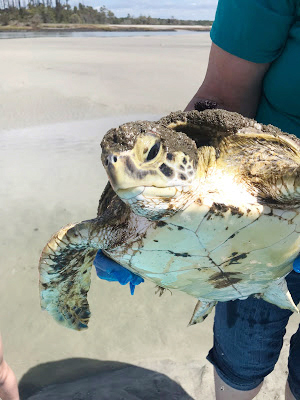
Mataya wanted to spotlight the efforts of the sanitation workers and volunteers Brooke, Danna and Sherry, who “did a great job asking people to socially distance. They talked with everyone coming up to the crawl and explained what was going on and why everyone had to stay back.”
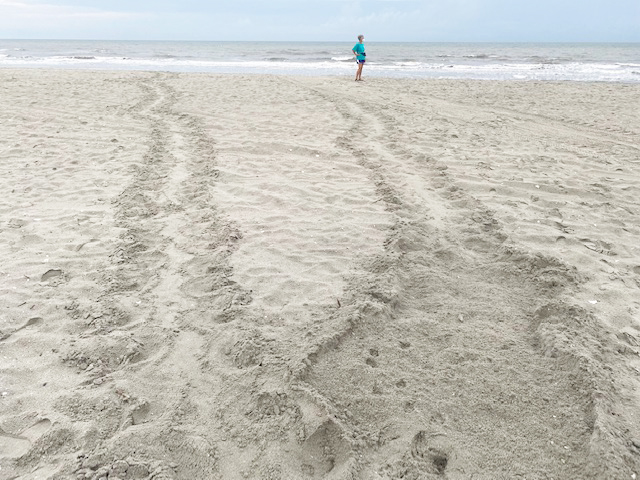
Sanitation workers out on the beach before the crack of dawn spotted the nest and alerted Mataya and the patrol. She said there was a lot of sand thrown down into the “body pit” area, with tracks and a small hole made by a dog or fox probably scoping out the situation. The nest contained 110 eggs mostly hidden down a very deep egg chamber, according to Mataya, and after collecting one for DNA analysis the patrol was able to relocate it to higher ground right next to the sand dunes.
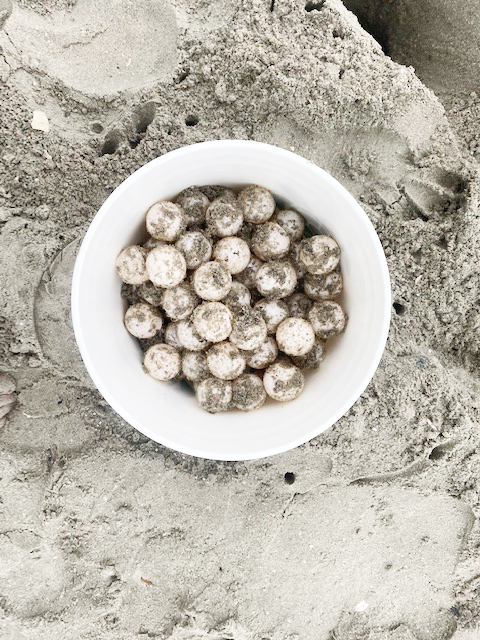
It will take approximately six to eight weeks for the eggs to hatch and then the baby sea turtles will begin their march to the ocean and start their new journeys away from their home here in North Myrtle Beach. And maybe in 30 or so years, they can return and lay their eggs and continue the circle of life.
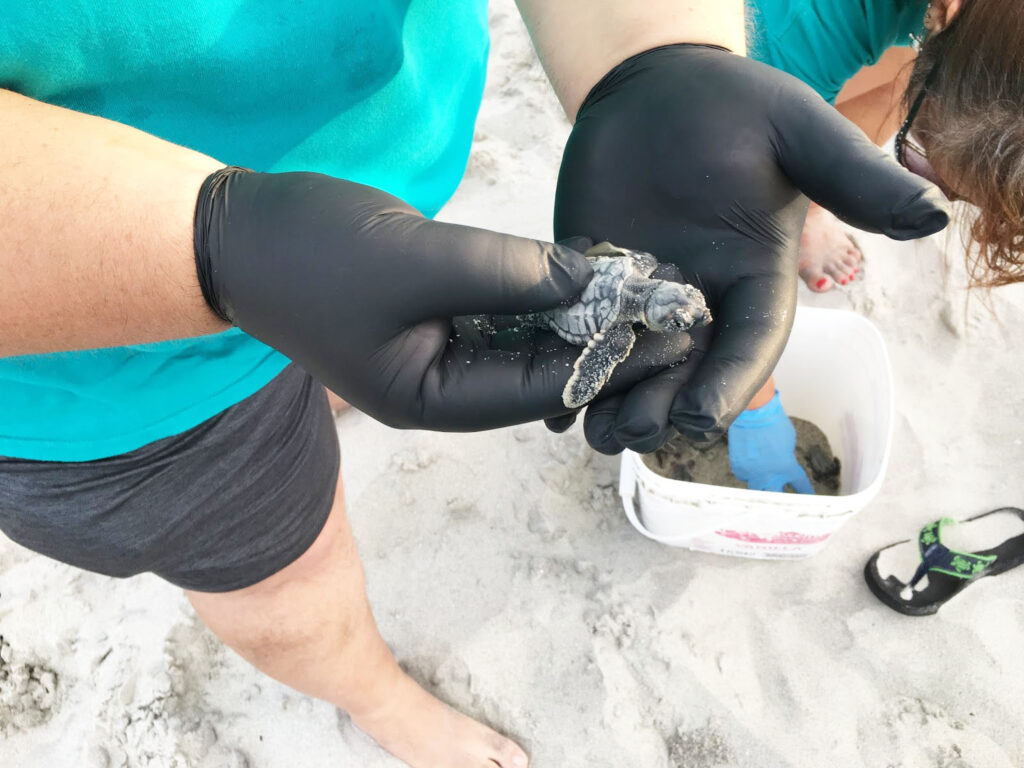
Until then, keep an eye out for nests and adult and baby sea turtles and contact the North Myrtle Beach Sea Turtle Patrol immediately at 843-213-9704.
 North Myrtle Beach Times Serving our Community and the Grand Strand for over 50 years
North Myrtle Beach Times Serving our Community and the Grand Strand for over 50 years

